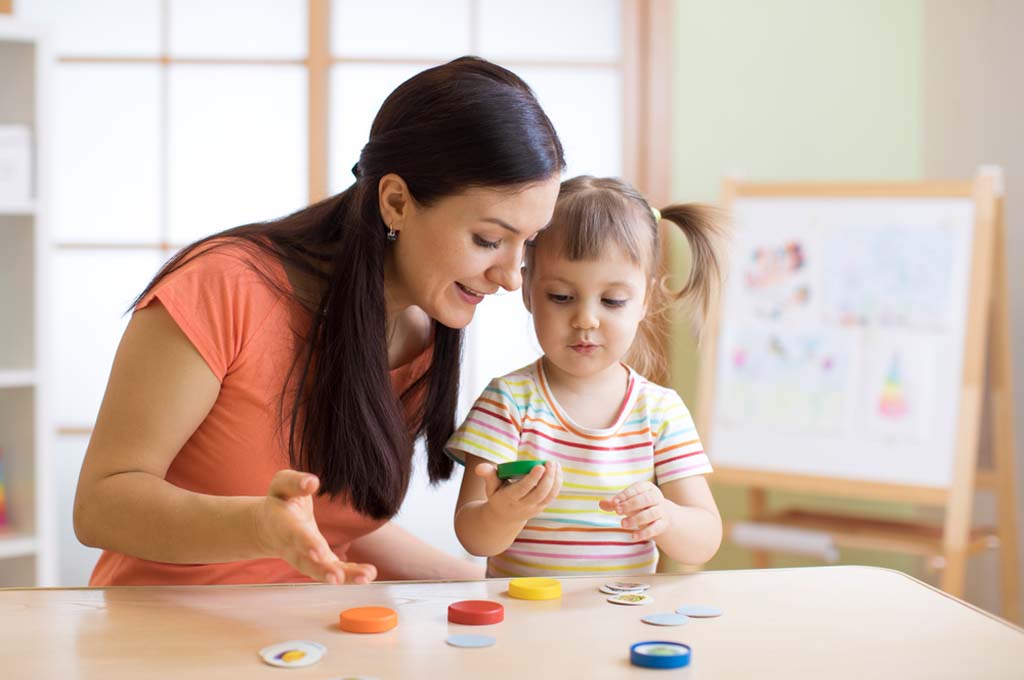Early childhood is a time of rapid growth and learning for children. It is during these formative years they begin building a strong foundation on which all future learning will take place. And many parents are surprised that the act of play is so integral to proper, healthy development.
It is through play that children develop physically, mentally, emotionally, and socially. Play allows children to make sense of the world around them and understand their place in it. Other benefits of play include:
-
Gaining confidence and building self-worth
-
Learning to plan and think ahead
-
Learning to think critically and solve problems
-
Dealing with emotions in a healthy way
-
Using new vocabulary
-
Learning to play independently and be comfortable being alone
-
Understanding the concepts of teamwork and taking turns
Today we’ll look at how play enhances each area of early childhood development.
Cognitive Development
Skills like listening, learning, and thinking critically are included in cognitive development. Games or activities should encourage children to ask questions and attend for increasing periods of time. Practicing telling the difference between two things, problem solving, and reasoning are also important components of cognitive development.
Activities that help develop cognitive skills include:
-
Games that encourage matching and sorting
-
Card games like Snap and Memory
-
Board games like Snakes and Ladders and Candyland
-
Puzzles
-
Stacking blocks or boxes
Self-Help Skills
Self-help skills are those skills children learn that help them become more independent. Skills like the ability to dress and feed oneself, brush teeth and hair, and bathe/wash properly are important life skills.
Games that can improve a child’s self-help skills include:
-
Scooping games – give your child a bowl full of colored pom poms and ask them scoop out a certain color
-
Wooden food cutting sets
-
Skills boards that let children practice fastening buttons, zippers, laces, and snaps
-
Getting into and out of dress-up costumes
-
Cutting paper with scissors
Physical Development
Physical skills include muscle control, body awareness, balance, and coordination. Preschool-aged children are learning to control their bodies and developing fine and gross motor skills. Much of a child’s day is filled with activities like running, jumping, and skipping that promote gross motor development, but it is also important to engage in activities that promote fine motor skill development as well.
Activities for gross motor development include:
-
Jumping on trampolines
-
Riding bicycles, tricycles, or scooters
-
Hopscotch
-
Running through an obstacle course
Activities that promote fine motor skill development include:
-
Working with Playdough and putty
-
Painting
-
Stringing beads onto pipe cleaners
-
Making macaroni necklaces
-
Drawing and coloring
Language Development
Being able to communicate is an essential life skill. Children need to be able to articulate how they are feeling and what they are thinking in productive ways.
Building a foundation for strong language development better prepares children for learning to read and write.
Reading to your child from the moment they are born is the single best way to help them improve their language development. Hearing you read helps children learn how to speak and pronounce words correctly.
Other activities that promote language development include:
-
Role playing – have children dress up like neighborhood characters (doctors, teachers, police officers, etc.) and encourage them to think about what those characters might say.
-
Storytelling – encourage children to pick up a familiar story book and retell the story using the images from the book as a guide.
-
Singing – sing popular children’s songs and nursery rhymes together.
Social/Emotional Development
Young children must learn how to express their emotions in a way that is healthy. They are also learning to navigate social norms and interact with one another. As children enter a classroom environment, they must learn how to:
-
Regulate their emotions
-
Develop their natural curiosity
-
Learn what it means to be a friend
-
Think of themselves positively
Proper and emotional development helps children learn how to work collaboratively and how to manage their feelings when things don’t go their way.
Activities that promote healthy social and emotional development include:
-
Ball rolling – though it seems simple, rolling a ball back and forth between partners is a wonderful way to introduce the concept of taking turns.
-
Role playing – Taking the identity of common community roles helps children explore social norms.
-
Reading and asking questions – Reading stories in which the characters experience big emotions can help children understand their own feelings. Be sure to pause and ask questions to help children explore the feelings of the character and develop their own sense of empathy—How do you think Jim felt when he lost the race? What did Kelly think when Josie took her cookie without asking?
The importance of play in the development of young children cannot be overstated. It is the essential work of childhood. Parents and caregivers can help children in their development by providing a variety of play activities that encourage progress in all five areas of development.
For any information about our Educational Programs, give us a call at 02 9199 0294 or fill in this contact us form.
Thanks for reading,
Clovel Childcare
1300 863 986












